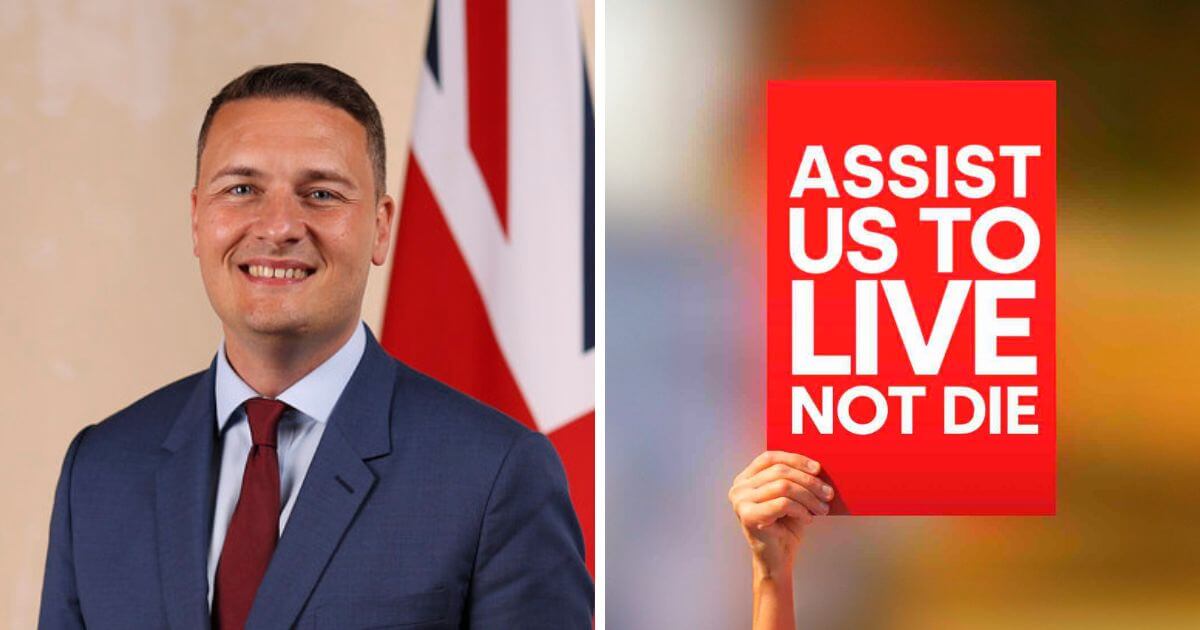The Health Secretary will vote against the Leadbeater assisted suicide Bill, which is set to be debated next month, over concerns about a lack of choice created by the poor state of palliative care.
While Wes Streeting expressed serious reservations about making assisted suicide legal, especially in the context of an NHS which he described as “broken”, he had not, until Monday, said that he would actually vote against a change in the law.
According to The Times, in an intervention on Monday evening, Streeting told backbenchers that end-of-life care is not good enough for people to make a “genuine choice” about assisted suicide.
The Health Secretary was asked whether the palliative care system was ready for a change in the law on assisted suicide.
An unnamed Labour MP said “Wes said that palliative care isn’t good enough, then added he hadn’t intended to get into the discussion about assisted dying, but told us his view”.
“He told us he wants to get to a point where people have a real choice at the end of life. At the moment, he said he doesn’t think it’s a genuine choice because palliative care is so bad. He did explicitly say he’d be voting against the assisted dying bill. He said he voted for it last time but he’s changed his mind”.
Another MP said that the Health Secretary had been “explicit” that he would vote against Leadbeater’s assisted suicide Bill, saying that the emphasis should be on palliative care.
Streeting’s intervention is reported to have weighed heavily on some MPs. A ministerial aide said “There are MPs who have doubts but are on the fence, and this would have reinforced those doubts. The justification is nothing he didn’t say in public, but this is the health secretary, you’ve got to take it seriously”.
One Labour MP who was in the room and who does not support the assisted suicide Bill said “I think the concern quite a few MPs have, including the one who asked the question [of Wes Streeting], is that palliative and end-of-life care is in such a poor state that that’s a reason people are unable to die with dignity in many cases. So sort that out first, then come back to this later”.
The introduction of the Leadbeater assisted suicide Bill comes as many elderly people go into winter with their Winter Fuel Payment cut by the Government, as palliative care services are in crisis with 100,000 people dying each year needing palliative care but not receiving it, and a wider healthcare system also in a state of crisis.
Cabinet members opposed to making assisted suicide legal
The Health Secretary is the highest-profile MP to state his intention to vote against a change in the law and joins fellow Cabinet Minister Justice Secretary, Shabana Mahmood, in his doing so.
Mahmood voted against making assisted suicide legal in 2015 and she has remained a vocal opponent of assisted suicide. In July this year, she said, “I don’t intend to support it”.
“I know some MPs who support this issue think, ‘For God’s sake, we’re not a nation of granny killers, what’s wrong with you’… [But] once you cross that line, you’ve crossed it forever. If it becomes the norm that at a certain age or with certain diseases, you are now a bit of a burden… that’s a really dangerous position”.
Streeting’s confirmation of his voting intention reveals a deepening divide in the Labour Cabinet, with fewer than half indicating they support making assisted suicide legal despite the Prime Minister’s vocal support for a change in the law, according to their previous voting records and public statements.
Based on previous votes for assisted suicide in 2015 and 1997, as well as recent public comments on the issue, fewer than half of the MPs within the Labour cabinet appear to support assisted suicide becoming legal and would be likely to vote for a change in the law next month.
Ten members of the cabinet are likely to vote against a change in the law based on their previous votes and public statements, while the views of two members of the cabinet remain entirely unknown having no known statements on the matter nor were they elected Members of Parliament for the last assisted suicide vote in the House of Commons in 2015.
Spokesperson for Right To Life UK, Catherine Robinson, said “MPs should listen to the Health Secretary who would have a better idea of the poor state of end-of-life care than most. In this context, the idea that people will freely choose an assisted suicide absent from pressure or fear of an unpleasant death due to poor end-of-life care is a fantasy. MPs must vote against the disaster in waiting”.












